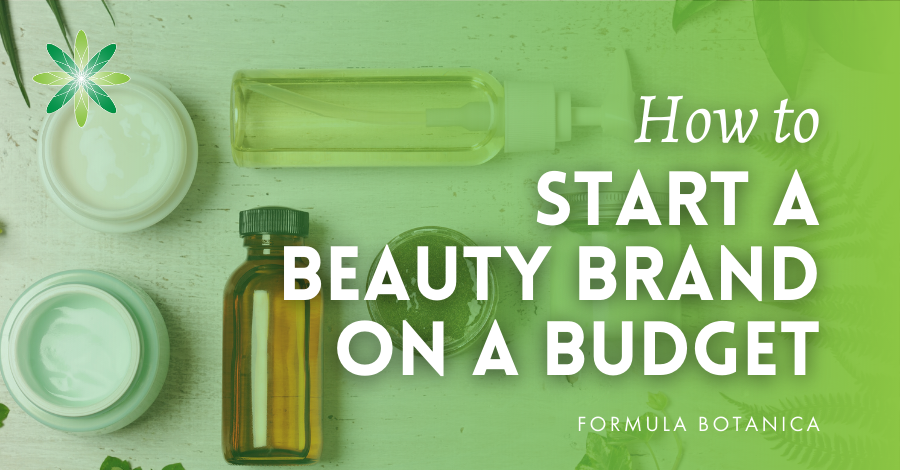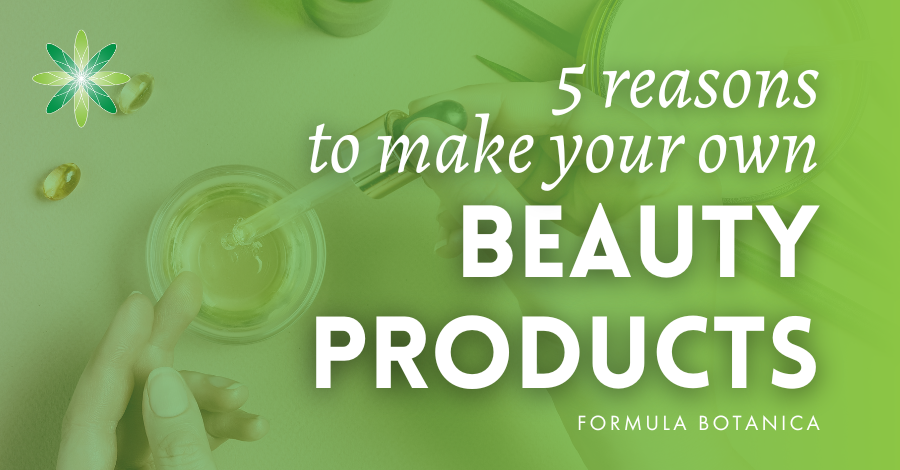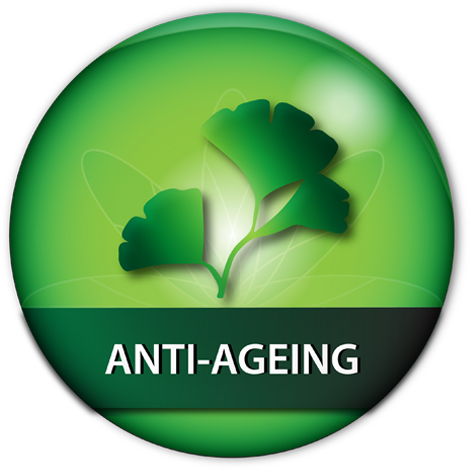New beauty entrepreneurs often have the idea that it’s going to cost them tens of thousands of dollars to launch a beauty brand, which puts many people off realising their dreams of starting a beauty brand. However, we know from talking to many of our wonderful graduates that indie beauty entrepreneurs can succeed starting on a small budget.
In this blog post, we demystify the topic of money and show that it is perfectly possible to bootstrap a successful beauty brand starting on a shoestring. And don’t just take it from us that financing a beauty brand is within reach of every natural formulator. Below, we speak to some of our graduate achievers who have launched brands recently.
While they all have different money matter stories to tell, what they do have in common is confidence, and the self-belief that their business could be financed and would succeed.
The history of the beauty industry tells us this is a powerful driver of business success. Many famous cosmetics brands were started by women pioneers in the early 20th century who grew their businesses from humble beginnings, often in their homes, and succeeded through the sheer drive of their founders.
Bootstrapping a beauty brand
We’ve seen all shades of beauty start-up among our graduates. Everyone’s launch story is different and there is no one-size-fits-all to starting a beauty brand. However, bear in mind that launching with ample funding can mean you spend on things you do not really need at the start. A small budget can help you focus on priorities and make you even more determined to succeed.
Roshanne Dorsett founded her vegan beauty brand The Glowcery in the UK with just a couple of thousand pounds.
Graduate and indie beauty founder Sandra Velasquez, who now has her high-end, Latino-heritage brand Nopalera stocked in major stores throughout the USA, says she had no financing at all to speak of at the start.
Alison Williams-Smith of Tigs & Moo ploughed back her first profits made from selling to family and friends into growing her brand, one step at a time. While Myrlande Holborough of Ekspresyon Naturel rose to the challenge of crowdfunding and surprised herself when she hit her funding target.
Let’s now hear from our graduates about their experiences of starting beauty brands on a small budget. They have lots of tips to share.
Dreaming of starting a beauty brand but worried about the cost? Find out how 4 @FormulaBotanica graduate indie beauty founders bootstrapped their successful beauty brands. #indiebeauty #femaleentrepreneurs Click To Tweet
View this post on Instagram
Our graduate case studies
Sandra Velasquez – Founder, Nopalera
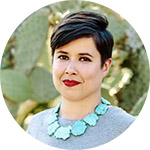
I started Nopalera in the middle of the pandemic, holding down two jobs, teaching evenings and raising my daughter. I have always been transparent about how I bootstrapped Nopalera. I had a burning desire to change my life and get out of my small apartment. I thought: either I can create a brand or stay where I am. Even with Nopalera’s quick growth and success today, I can’t imagine knowing what it’s like to have started with generous financing or loans from family or friends. I literally had no ready sources of funding.
I priced everything out, from packaging to ingredients and the website. I looked for the smallest minimum order quantities and wrote down the volumes at which those dropped down in unit cost. I paid with money I could barely spare and used personal credit cards to spread the costs out in increments.
Manufacturing at home, I made just 100 bars of soap for my first production batch. I had several different types of stock keeping units (SKUs), but you don’t need to make more product types to make more money. Stay focused, keep small and do the maths. You don’t need all the cash at once; all the money up front does not guarantee you will succeed.
Now, in year two of Nopalera in business, I am looking at other sources of funding to scale up. Other options to consider when you are looking for sources of finance are: credit or bank loans, which wasn’t an option for me as I still had student debt; inventory financing – short-term loans to help you buy in stock like ingredients to ensure you don’t have to stop manufacturing; credit cards – if you have a good grasp of your finances, do not be afraid to ask for a credit limit increase if need be and get a business credit card as soon as possible; and venture capital, which takes a lot of work to prepare for but in reality, you should be going to market with a clear road map or business plan anyway. Even if not pitching for venture funding, you need to know what your business is aiming for now, in one, three and five years.
Sandra’s top tips: You don’t need all the money at the start. Don’t let analysis paralysis stop you from starting your beauty business and don’t be scared of figures that are bigger than you have seen before. Believe me, once you commit to your brand, you will see the road opening up.
For more on how Sandra built Nopalera, see:
Podcast 91: Nopalera – the brand mission of indie founder Sandra Velasquez
Graduate gallery: Nopalera
Website: Nopalera
The Nopalera Podcast
Nopalera on Instagram
Roshanne Dorsett – Founder, The Glowcery
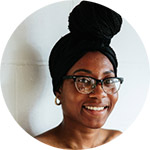
How did you start out?
I had no experience in skincare formulation before starting my Formula Botanica course. While studying, I started thinking through my brand and the direction it could go in. Within six months of graduating from the Diploma in Organic Skincare Formulation, I managed to get my brand off the ground. It was hard work building my brand and studying at the same time, but I was focused on my goal.
How did you raise the finance to launch your business?
I was working part time at the start and put whatever I could save after daily living expenses into my brand and business. I launched spending a maximum of £2k, and that sum includes everything: the ingredients, bottles, packaging, brand design and product testing.
What were your first priorities to spend on?
When you don’t have a big budget you work out how to be creative in covering start-up costs. I used a freelance graphic designer who was a friend of a friend. I found a microbiologist for my product safety testing who specialises in working with small businesses. I was on a tight budget, but I was determined to get The Glowcery out there. I did it all within the £2k budget and on a part-time income.
What is involved in launching on a shoestring?
I still do everything myself and listening to other Formula Botanica entrepreneur stories, I know it’s just part of the journey. My dream is to find a manufacturer, and I will get to that stage but in baby steps. I produce The Glowcery products from a dedicated room in my house, but I want to have a shed specially set up for manufacture. I hand make everything with only the help of a special pump as equipment to dispense face and body oils into bottles. It can be a bit hectic when I have a lot of orders but in time, I will afford more to help my business grow.
How is your business doing and what are its greatest successes so far?
I launched with just three products and have already won an award for one of them. I am now hoping to expand the range to give customers a whole skincare routine. But, everything in time.
Roshanne’s top tips: Do things in baby steps. Once you have a viable business, then start expanding and growing your range, facilities and equipment and hiring outside help. Like I did, you can start developing your brand and business while studying formulation. Just give yourself the chance to launch a beauty business.
Find Roshanne and The Glowcery:
The Glowcery website
@TheGlowceryShop on Instagram and Facebook.
The Glowcery in our graduate gallery.
Myrlande Holborough – Founder, Ekspresyon Naturel
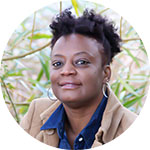
How did you start out?
Before starting my journey into natural skincare, my career was in the acquisition and administration of contracts rather than in running a product-based business. I dealt a lot with the cost and pricing of goods and services, writing contracts and vetting potential contractors. This experience gave me a solid foundation on which to be able to manage my own business.
Based on my research, I thought I would need at least £14-20k to start my skincare line. However, once I started finalising my product line and contacting suppliers, I was able to launch the business with £6k.
How did you raise the finance to launch your business?
I joined a crowdfunding program to raise funds. It wasn’t an easy decision to make as I am an introvert, and the process required me to show my face and speak to the public. I quickly learned that as a brand owner, I cannot hide behind my brand. My fundraising occurred right at the beginning of the pandemic in 2020 and I was anxious about asking people to donate at such a time. However, I managed to raise £6k which was amazing and this allowed me to proceed with the launch of my business. I was fortunate to get support from not just friends and family, but also people who didn’t know me and wanted me to succeed.
What were your first priorities to spend on?
The first things that I needed to use the cash for were the lab assessments. Then, I focused on paying for a trademark and the company formation. The bulk of the money went towards raw materials, packaging, website design and build, operating systems, and branding.
What is involved in launching on a shoestring?
There was so much we wanted to do but our budget wouldn’t allow. Branding alone would have wiped our entire budget, so we had to get creative and do some of the work ourselves. A lot of research went into finding suppliers who were willing to deal with smaller minimum order quantities (MOQs) for both raw materials and packaging. As we are a natural skincare company, we are very focused on reducing our environmental impact where possible and finding packaging that would allow us to achieve these goals. However, this did increase our cost base at launch.
We saved money by learning to build a website from the ground up. Brand development was a steep learning curve in terms of both the creative process and the time it took to learn the required software tools to bring our design ideas to fruition.
How is your business doing now and what are your greatest successes so far?
Our big success is the number of repeat orders we have had. We have won two industry-wide beauty awards too. Moving forward, we have identified areas in which improvements can be made. We are currently working on refreshing our branding and making improvements to how we interact with our customers both online and face to face.
Mylande’s top tips: First, leave your fears, doubts, and negativity at the door. Don’t let fear of the costs stop you. Take the plunge and start where you are. You never know what can be accomplished until you try. Shop around, be prepared to learn new skills to cut costs, and do your research on suppliers who are willing to service small business order quantities. Finally, be prepared to put in some hard work. Success will not happen overnight, but determination, drive, and love for what you do will take you far.
Find Mylande and Ekpresyon Naturel:
Ekspreyson Naturel website
@Ekpreysonnaturel on Instagram and Facebook
More information on starting a beauty brand
If you enjoyed reading and learning from our case studies here, check out these posts:
10 Steps to a beauty brand business plan
10 tips for branding a beauty business
How much does it cost to start a beauty business?
FREE TRAINING
Learn how to become an
Organic Skincare Formulator
FREE TRAINING
How to become an
Organic Skincare Entrepreneur
FREE TRAINING
How to become an
Organic Skincare Entrepreneur
Leave us a comment
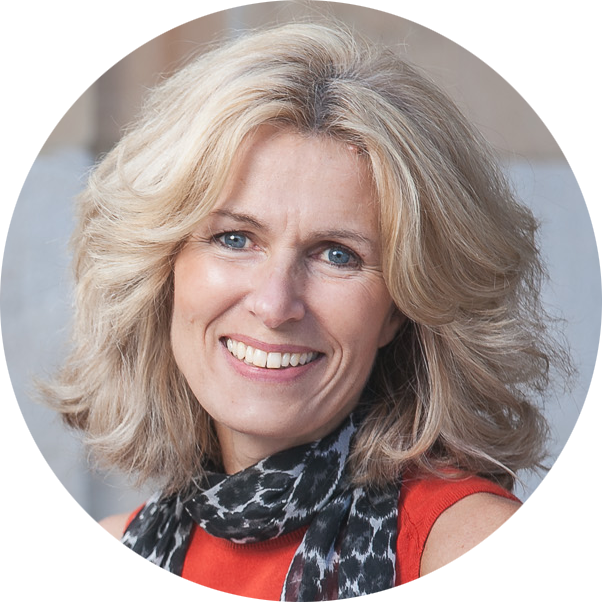
Liz was Formula Botanica’s Content Coordinator between August 2020-2024. Liz worked as a professional blogger, journalist and site developer for many years and was also part of the Formula Botanica student community. Read more about the Formula Botanica Team.

